There was a period in Nigeria when comic books seemed nonexistent, yet they have actually been part of the country’s creative history for a very long time.
One of the earliest Nigerian made comic books was Wale Adenuga’s Ikebe Super and Super Story, which was a big deal in the 70s and 80s.
The advent of Supa Strikas in 2001 ushered in a refined version of Nigerian comics.
The last decade has produced a good number of highly creative Nigerian comic book companies and creators.
And therefore we are in a time when creators are reaching into their imaginative core dishing out the gripping, compelling and amazing African/Nigerian stories in the sequential art form.
So the big question is, who is making comics in Nigeria? Who are the major players in this nascent industry?
Tracing the Roots: The Early Days of African Comics
You can’t talk about today without remembering yesterday. The roots of African comics stretch back decades: political cartoons, educational strips, folktales illustrated by local artists.
Creators drew on what was around them colonial history, indigenous folklore, everyday lives even when materials were scarce and distribution limited.
One of the early legends is Tayo Fatunla, a Nigerian-British cartoonist whose Our Roots series (launched in 1989) has been teaching, provoking, educating, entertaining for over 30 years.
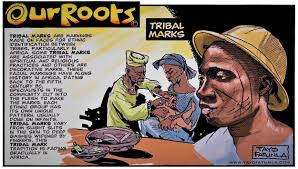
His illustrations weren’t just pictures, they were identity-changers. They said: “We are here. We matter.” These early creators laid the foundation: style, themes, culture, identity.
But their reach was often limited by cost of printing, weak distribution networks, and a lack of digital tools. Then things started shifting.
Another early wave came through Kwaw Ansah and Frank Odoi, Ghanaian creators who, in the 1990s, began exploring African myth, history, and humor through illustrated storytelling.
Their works quietly inspired a new generation the kids who grew up reading Western superheroes but longed to see reflections of their own world.
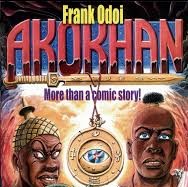
The Rise of Modern African Comics: 2010s to Today
Then came the internet age and with it, the creators who turned passion into a movement. Below are a number of companies and individuals making waves in Nigeria’s comic industry:
Jide Martin – Comic Republic (Founded 2013, Nigeria)
In 2013, graphic designer Jide Martin decided to build what he called a “House of African Heroes.”
That vision became Comic Republic, Nigeria’s biggest comic studio. With flagship titles like Guardian Prime, Ireti, and Avonome, the studio has created an entire shared universe of African superheroes a bold parallel to Marvel’s MCU, but rooted in African myth and urban culture.

Martin’s strategy was revolutionary: make comics accessible. Many of Comic Republic’s early issues were released online for free, building a loyal global fanbase.
Today, their characters are being adapted for TV and film, with international collaborations on the horizon.
Loyiso Mkize – Kwezi (Launched 2014, South Africa)
Across the continent, in South Africa, Loyiso Mkize was busy redefining what a superhero could look like.
In 2014, he released Kwezi, a comic about a young, arrogant South African who discovers his powers and his purpose.
What made Kwezi special wasn’t just its art, it was its language. Mkize infused South African slang, local settings, and township energy into every panel.
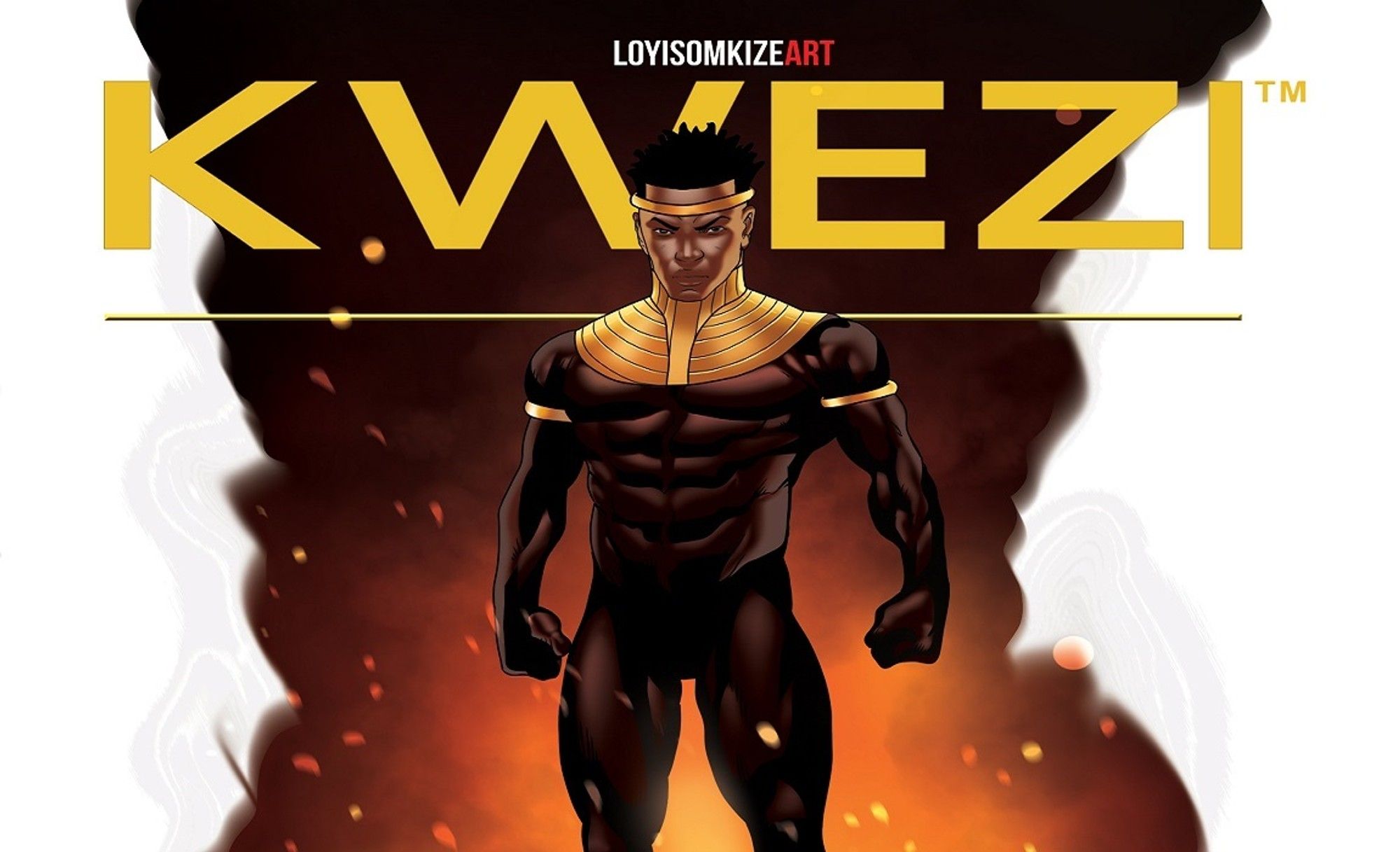
Kwezi wasn’t just a hero; he was a mirror. Within a few years, the comic became a national sensation, taught in schools, and later confirmed for an animated adaptation.
Mkize’s work even caught the eye of DC Comics, where he became one of the first African artists to illustrate for Batwing.
His journey proved that African creators can lead both at home and on the global stage.
Roye Okupe – YouNeek Studios (Founded 2015, Nigeria/US)
In 2015, Nigerian-born Roye Okupe left his full-time engineering job to chase a dream, building a cinematic comic universe inspired by Africa.
He founded YouNeek Studios, and his first title, E.X.O.: The Legend of Wale Williams, exploded internationally.
Okupe blended Yoruba mythology, futuristic tech, and universal heroism proving that African sci-fi could stand shoulder-to-shoulder with Marvel or DC.
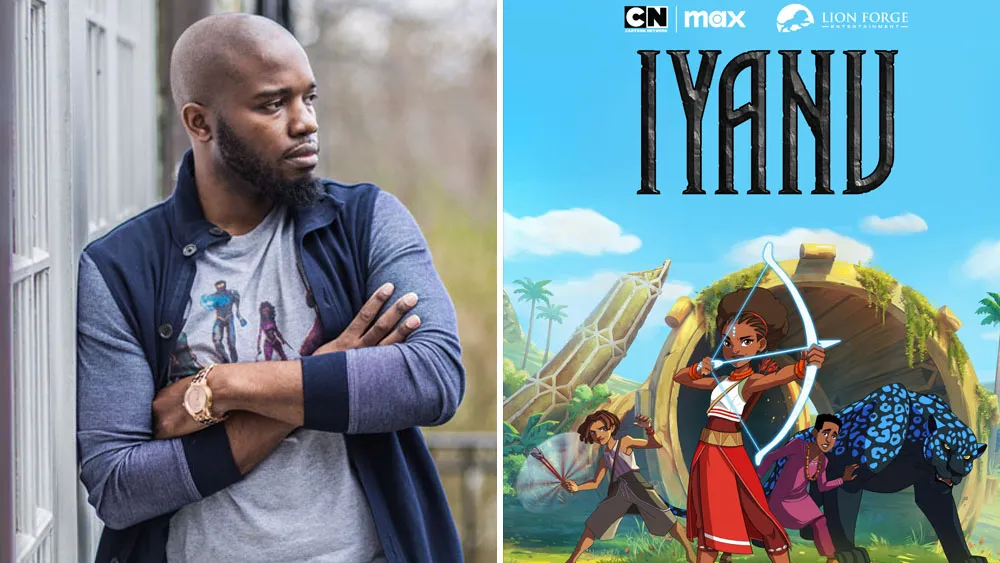
His YouNeek YouNiverse now includes Malika: Warrior Queen and Iyanu: Child of Wonder, the latter currently being adapted into an animated TV series by Cartoon Network and HBO Max.
Through persistence and partnerships (including a historic publishing deal with Dark Horse Comics), Okupe has become a global ambassador for African storytelling.
Kugali Media (Founded 2016, Nigeria/Uganda/UK)
When Hamada, Ziki Nelson, and Tolu Olowofoyeku founded Kugali Media in 2016, they wanted one thing: to tell African stories through comics and animation that could rival anything in Hollywood.
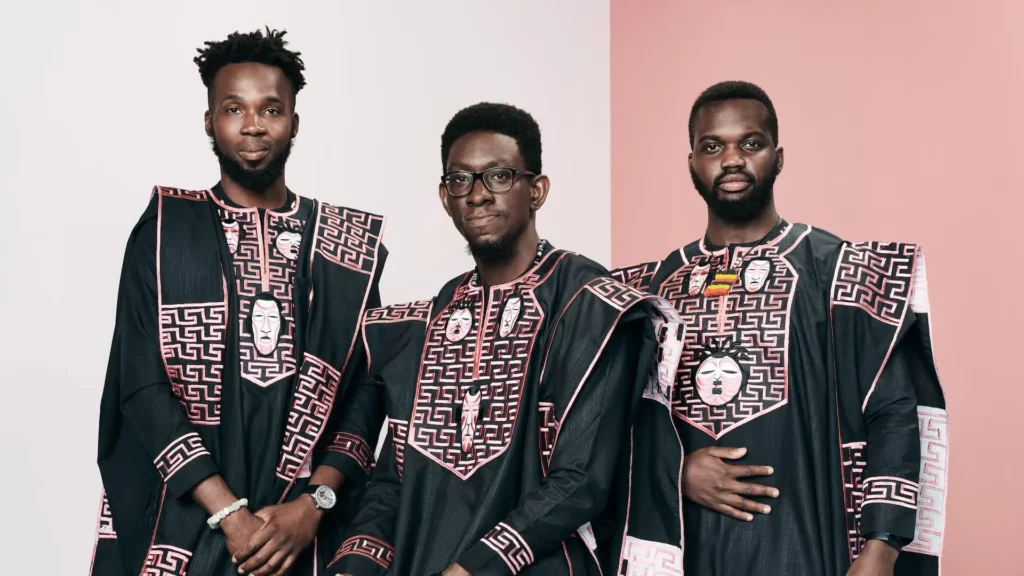
Their breakout project, Iwájú co-produced with Disney is set in a futuristic Lagos and became one of Africa’s biggest entertainment exports.
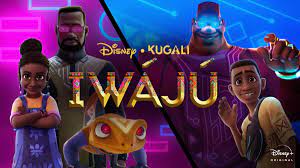
Kugali didn’t just enter the comic scene; they kicked down the door. Their success has redefined how African IPs are valued globally, setting the stage for future creators to partner with giants on equal terms.
Ayodele Elegba – Spoof Comics (Nigeria)
Ayodele Elegba, often called “The Dreammaker,” began his comic journey in 1999, creating Flame Boy while still in school.
In 2015, he founded Spoof Comics, one of Nigeria’s leading comic and animation studios, known for titles like Strikeguard, Vantage, and Boxsa.
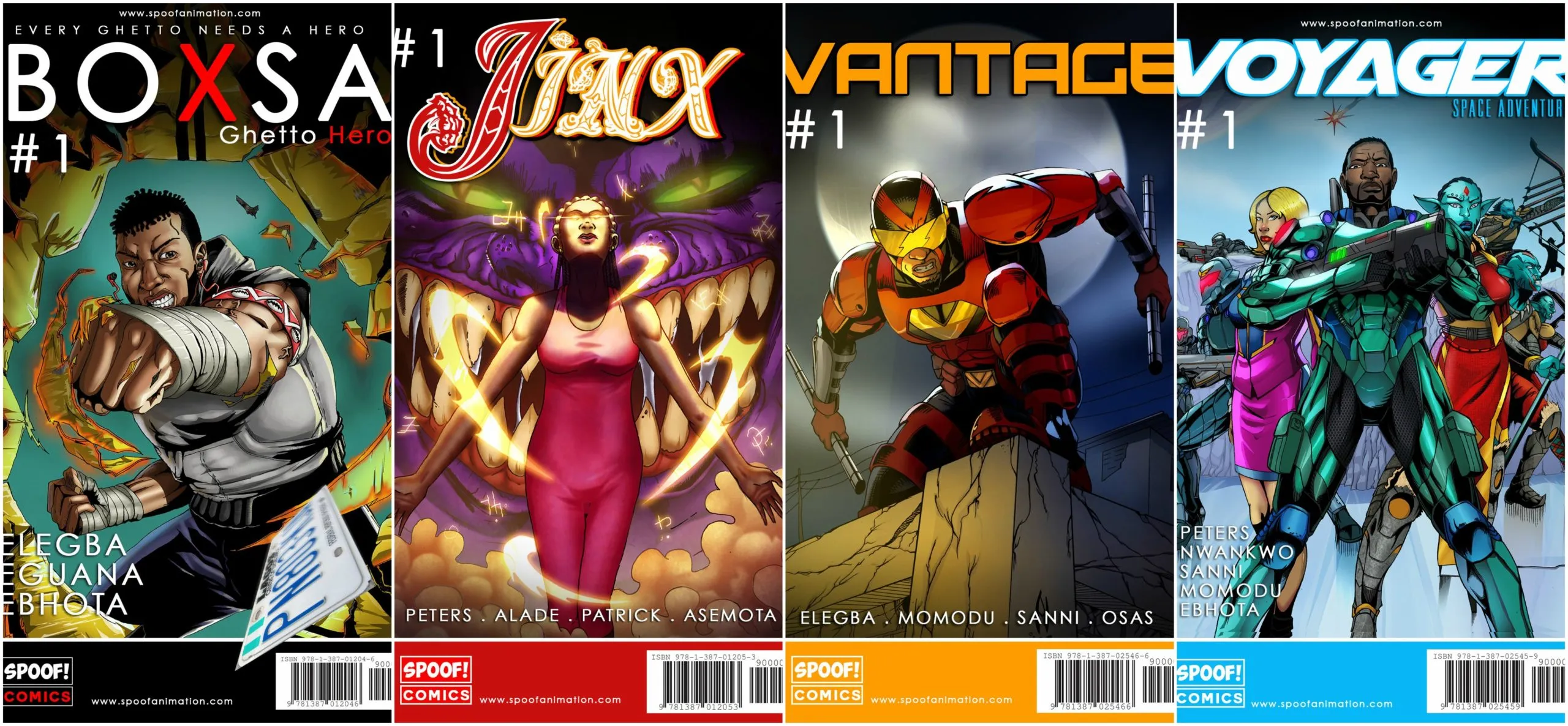
Elegba also launched Lagos Comic Con in 2012, now the biggest pop culture event in West Africa, and founded Spoof Animation Academy to train young artists.
His work has helped shape Nigeria’s modern comic culture and paved the way for emerging creators across Africa.
Zebra Comics (Founded 2019, Cameroon)
A newer but fast-rising player, Zebra Comics launched officially in 2019, introducing a mobile-first platform for African webtoons.
Their stories, ranging from horror to romance to folklore, cater to young digital audiences across the continent.
By merging tech and storytelling, Zebra Comics became the “Netflix of African comics.”
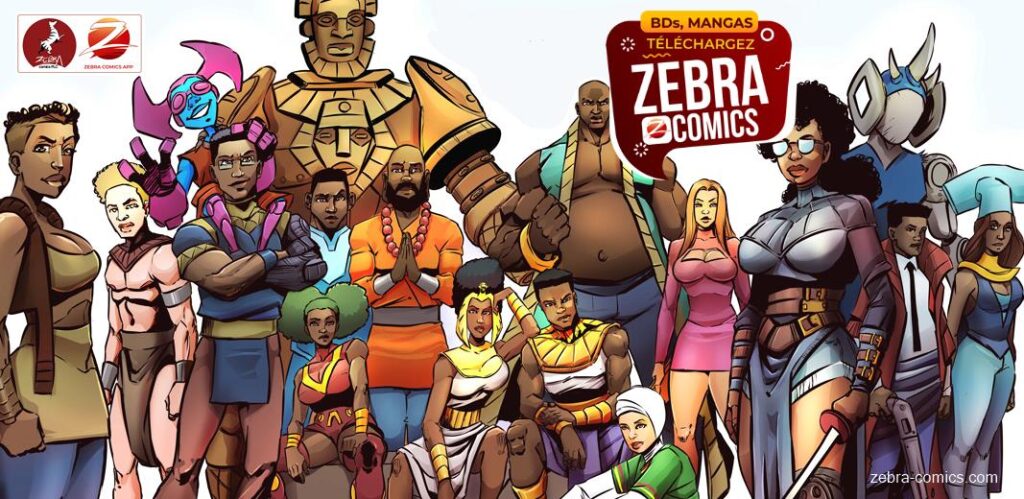
Their impact lies in accessibility, they’ve made it possible for readers to consume high-quality African comics directly on their phones, proving that innovation and inclusion can go hand-in-hand.
Murewa Ayodele & Dotun Akande – Collectible Comics (Nigeria)
Two friends, Murewa Ayodele and Dotun Akande, started creating comics together in the mid-2010s.
They are the minds behind My Grandfather Was a God and New Men, known for their experimental storytelling and emotional depth.
Ayodele’s scripts often explore African spirituality and moral dilemmas, wrapped in sci-fi and fantasy layers.
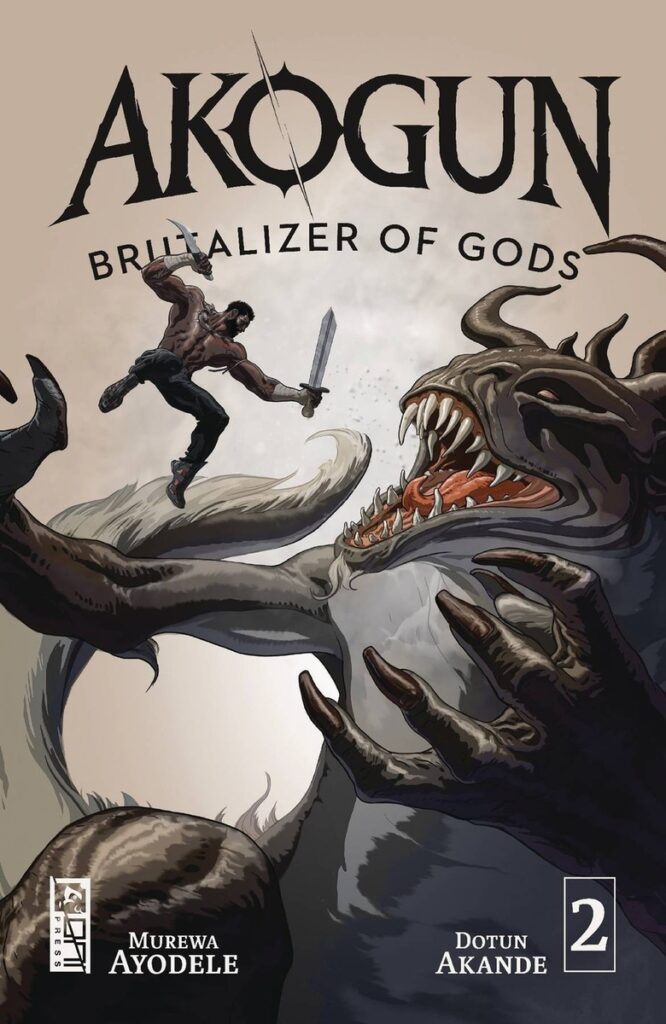
Their creative partnership caught international attention, landing projects with global publishers and marking them as part of Africa’s “next generation” of storytellers.
Urenna Amadi — Afriwood Comics (Nigeria)
Founded by Urenna Amadi, Afriwood Comics is one of Nigeria’s most ambitious comic studios blending creativity, technology, and cinema.
The studio made waves with Shutter-Bird, Nigeria’s first live-action superhero comic, available in both print and digital formats. Afriwood’s approach goes beyond illustration.

It’s a cinematic experience on paper, merging photography, digital art, and storytelling.
This fusion of film and comics positions them as innovators who are localizing the superhero genre while introducing new storytelling possibilities for African creators.
Numbers Don’t Lie: The Rise and Future of African Comics
The global comic book market was valued at over $17 billion in 2024, and is projected to reach $25–37 billion by 2032.
Asia leads the way, but Africa’s growth is among the fastest, driven by digital platforms, smartphone use, and an insatiable hunger for authentic stories.
In countries like Nigeria, South Africa, and Kenya, digital readership has doubled in just a few years.
Studios like Comic Republic and Zebra Comics are seeing increasing investor interest, and webtoon platforms are expanding their reach across Africa.
In short: the audience is here, the creators are ready, and the world is finally paying attention.
The Next Chapter: The Future of Comics in Africa
The African comic industry’s next decade looks electric. Expect more animated adaptations, more female-led studios, and more cross-border collaborations.
Folklore, sci-fi, and social commentary will continue to merge, creating new genres born from Africa’s diversity.
Most importantly, this new wave of creators isn’t asking for validation, they’re building empires.
Each stroke, script, and storyline is a declaration that African stories belong everywhere not just in history books, but in universes, fandoms, and imaginations.